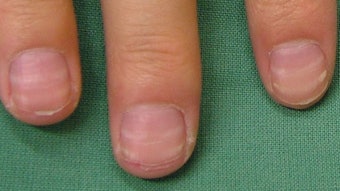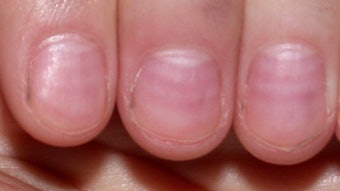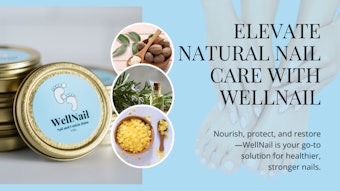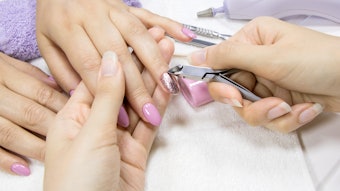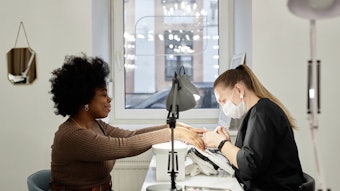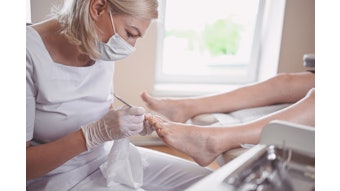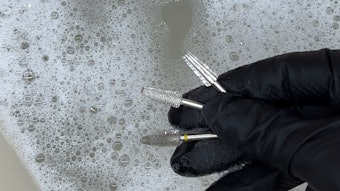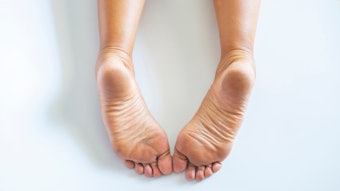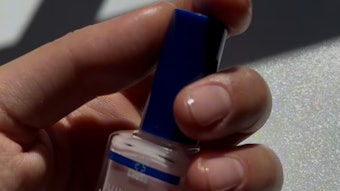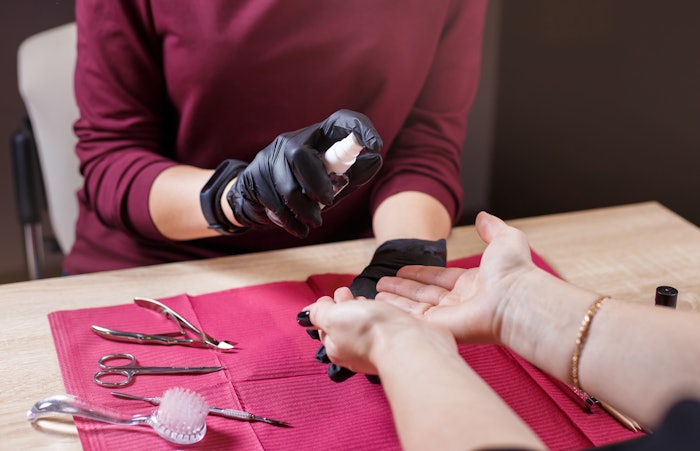
Maintaining a high standard of hygiene in nail salons is essential to ensure client safety, build trust and sustain a reputable business. Nail salons are places where personal care meets artistry, but they also come with unique health risks if proper sanitation protocols are not followed. This article explores why hygiene matters in nail salons and highlights the critical role of disposable supplies in creating a safe and professional environment.
This article is only available to registered users.
Log In to View the Full Article
Maintaining a high standard of hygiene in nail salons is essential to ensure client safety, build trust and sustain a reputable business. Nail salons are places where personal care meets artistry, but they also come with unique health risks if proper sanitation protocols are not followed. This article explores why hygiene matters in nail salons and highlights the critical role of disposable supplies in creating a safe and professional environment.
Understanding the Risks in Nail Salons
Nail salons are bustling environments where tools, surfaces and products come into direct contact with clients’ skin and nails. While these treatments enhance beauty, they can also expose clients to potential health risks, including:
- Infections: Bacterial, fungal and viral infections can easily spread through unclean tools, work stations or improperly sanitized equipment.
- Allergic Reactions: Cross-contamination between clients can introduce allergens, leading to skin irritation or severe reactions.
- Chemical Exposure: Nail products like polishes, removers and adhesives often contain chemicals that can irritate the skin, eyes or respiratory system if not handled properly.
- Bloodborne Pathogens: Accidents, such as small cuts during manicures or pedicures, can expose clients and staff to bloodborne diseases.
These risks underscore the importance of prioritizing hygiene and taking proactive measures to safeguard clients and staff.
Why Hygiene is Non-Negotiable
Hygiene in nail salons is more than a legal requirement; it is a cornerstone of client trust and loyalty. A clean, well-maintained salon projects professionalism and care, making clients feel valued and secure. Conversely, poor hygiene practices can damage a salon’s reputation and lead to serious legal and financial consequences, including penalties, lawsuits or even closure.
Proper hygiene also protects salon technicians. Regular exposure to unsanitary tools or surfaces increases the risk of occupational hazards, such as infections or respiratory issues caused by prolonged chemical exposure.
The Role of Disposable Supplies in Salon Hygiene
Disposable supplies are single-use items designed to be discarded after serving one client. These include items like nail files, buffers, toe separators, cuticle sticks, gloves and foot bath liners and even cleanup brushes. Using disposable supplies offers several advantages in maintaining a hygienic salon:
Eliminates Cross-Contamination
Reusable tools, even when sanitized, may not be completely free of pathogens. Disposable supplies are used once and discarded, reducing the risk of transmitting bacteria, fungi or viruses between clients. Porous surfaces (like brush bristles) can provide hiding places for pathogens, making them harder to eliminate. It’s important to dispose of brushes that come into contact with blood or bodily fluids.  "Disposable supplies are used once and discarded, reducing the risk of transmitting bacteria, fungi or viruses between clients."Courtesy of White Bear Studio via Adobe Stock
"Disposable supplies are used once and discarded, reducing the risk of transmitting bacteria, fungi or viruses between clients."Courtesy of White Bear Studio via Adobe Stock
Saves Time
Properly cleaning and sterilizing reusable tools takes time and effort. Disposable items eliminate this step, allowing technicians to focus more on providing high-quality services.
Improves Client Confidence
Clients feel reassured when they see new, single-use supplies being opened in front of them. This transparency builds trust and demonstrates a salon’s commitment to their health and safety.
Complies with Health Regulations
Many local and national health authorities mandate the use of disposable supplies for specific procedures. Adopting these practices ensures compliance with regulations and avoids penalties.
Cost-Effective Hygiene
While reusable tools may seem more economical upfront, the costs of maintaining sanitation equipment (e.g., autoclaves) and the risks of failing inspections can outweigh the benefits. Disposable supplies provide a straightforward and reliable solution.
Best Practices for Salon Hygiene
To create a safe and clean environment, salons should implement the following hygiene practices:
- Hand Hygiene: Encourage technicians to wash their hands thoroughly before and after each client. Hand sanitizers should be readily available at every work station for both clients and staff.
- Tool Sterilization: For reusable tools, use hospital-grade disinfectants or autoclaves to eliminate pathogens. Always follow manufacturer instructions for effective sterilization.
- Surface Cleaning: Regularly disinfect all surfaces, including workstations, chairs and foot baths. Use disposable liners for pedicure tubs and replace them after each client.
- Ventilation: Ensure the salon is well-ventilated to reduce exposure to chemical fumes. Consider installing air purifiers to maintain air quality.
- Educate Staff: Train staff on hygiene protocols, including proper use and disposal of supplies. Encourage them to stay updated on industry standards and regulations.
- Health Screenings: Assess clients for visible signs of infections or skin conditions before services. Politely decline services if there is a risk of contamination.
Waterless Pedicure: A Step Forward
 Waterless pedicures eliminate the risk of bacterial buildup in foot baths and conserve water, making them a hygienic and eco-friendly alternative.Courtesy of VadimGuzhva via Adobe Stock
Waterless pedicures eliminate the risk of bacterial buildup in foot baths and conserve water, making them a hygienic and eco-friendly alternative.Courtesy of VadimGuzhva via Adobe Stock
Beyond Hygiene: Building Client Trust
A clean salon is a confident salon. Clients are more likely to return and recommend your services when they see your dedication to hygiene. Consider the following strategies to foster trust:
- Transparency: Show clients your cleaning processes, such as opening disposable items in front of them or explaining your sterilization protocols.
- Certifications: Display certifications or training credentials that showcase your commitment to health and safety.
- Feedback: Encourage clients to share their experiences and suggestions for improving hygiene.
Sustainability in Disposable Supplies
While disposable supplies offer undeniable benefits, salons should also consider their environmental impact. Choose eco-friendly options, such as biodegradable or compostable disposables, to reduce waste without compromising hygiene. Partnering with suppliers who prioritize sustainability can further enhance your salon’s reputation as a socially responsible business.
Disposable Tools Can Be Cost-Effective in the Long Run.
While disposable tools may seem like an additional expense, they can save money in the long term. The cost of cleaning solutions, sanitization equipment and potential client loss due to hygiene concerns outweighs the investment in disposable tools. Additionally, bulk purchasing options for disposable brushes can significantly reduce costs.
The Future of Nail Salon Hygiene
The nail care industry continues to evolve, with an increasing focus on health and safety. Advanced technologies, such as UV-C sterilizers and antimicrobial tools, are being developed to further enhance salon hygiene. Additionally, regulatory bodies are implementing stricter guidelines to ensure consistent standards across the industry.  Hygiene is the foundation of a successful nail salon. It protects clients and staff, builds trust and ensures compliance with health regulations.Courtesy of Katrin_Primak via Adobe Stock
Hygiene is the foundation of a successful nail salon. It protects clients and staff, builds trust and ensures compliance with health regulations.Courtesy of Katrin_Primak via Adobe Stock
For salon owners, staying ahead of these trends is crucial. By adopting best practices, investing in disposable supplies and prioritizing client and staff well-being, you can position your salon as a leader in hygiene and professionalism.
Hygiene is the foundation of a successful nail salon. It protects clients and staff, builds trust and ensures compliance with health regulations. Disposable supplies play a vital role in achieving these goals by eliminating cross-contamination, saving time and enhancing client confidence. Combined with healthy hygiene practices and a commitment to sustainability, they provide a blueprint for safe and efficient operations.
In a competitive industry, salons that prioritize health and cleanliness set themselves apart as trusted providers of beauty and wellness. By embracing the importance of hygiene and the benefits of disposable supplies, you can create a safe, welcoming environment where clients feel cared for and valued—one manicure or pedicure at a time.
Centers for Disease Control and Prevention [CDC], 2020
National Institute for Occupational Safety and Health [NIOSH], 2019
Occupational Safety and Health Administration [OSHA], 2020
